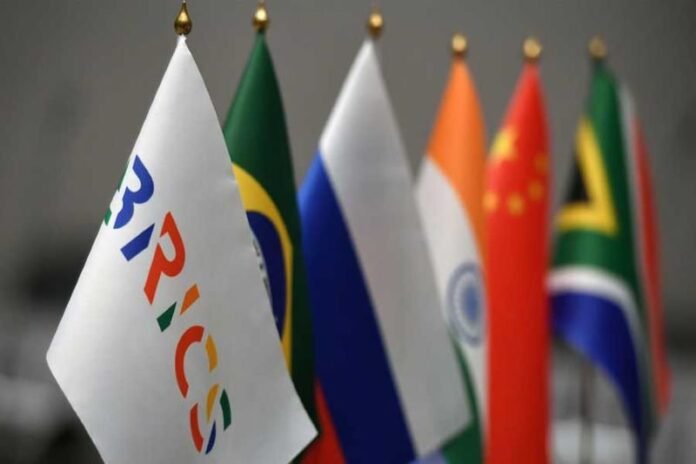Ramaphosa made this remark during his address to the nation on Sunday evening ahead of the summit.
South Africa has been a member of the bloc since December 2010 at the invitation of China.
The group was renamed BRICS – with the “S” standing for South Africa – to reflect the group’s expanded membership.
BRICS is an informal grouping of leading emerging markets and developing countries, currently, the member states are Brazil, Russia, India, China and South Africa.
South Africa hosts the 15th BRICS summit, which will be held at Sandton Convention Centre under the theme “BRICS and Africa: Partnership for Mutually Accelerated Growth, Sustainable Development, and Inclusive Multilateralism.”
It is the first BRICS Summit to be held in person since the start of the Covid-19 pandemic.
This means China’s President Xi Jinping, India’s Prime Minister Narendra Modi, and Brazil’s President Luiz Inacio Lula da Silva get to visit South Africa for the annual three-day summit.
Russian President Vladimir Putin is expected to join remotely due to the International Criminal Court arrest warrant against him.
Prof John Stremlau, an expert on US-Africa relations, says the fact that international leaders are showing up in Johannesburg for the summit is a reminder that South Africa can stand for essential values.
He, however, says South Africa’s influence on the bloc is not enough to influence the membership expansion decision.
President Cyril Ramaphosa has already reaffirmed South Africa’s support for the expansion of the BRICS group of nations.
Stremlau, an honorary professor of international relations at Wits, says South Africa is the tiniest member of the group.
“The BRICS are really China and India, and the extent Brazil and Russia. The question is, which other countries do you add? If African members, which ones? And what are the criteria?
“South Africa could assert its leadership in Africa if it could get its house in order,” says Stremlau.
Stremlau emphasised that Africa doesn’t need BRICS to grow local trade relations.
He, however, says the BRICS Summit being hosted in South Africa is a significant symbol for the entire continent.
On the conversation around de-dollarisation, Stremlau believes this is mainly pushed by China.
“This is a Chinese desire because it is looming as the world’s second-largest economy, and it may be the largest economy fairly soon.
“But on the other hand, it is facing real domestic challenges economically. I just think it will take form if governance and businesses want it to take form. I am not concerned about de-dollarisation. I don’t see how and when it is going to occur,” he adds.
Stremlau believes it will be difficult for the US to make space for another currency.
Although it is unclear what type of agreements will be reached at the summit, Chief Economist at Efficient Group, Dawie Roodt believes there will be some economic benefits for South Africa beyond the summit.
He, however, says a reserve currency is unlikely to pass.
“The payment system to trade with one another can happen, but a reserve currency to challenge the dollar is unlikely to happen very soon.
On the rand, Roodt believes it should be trading at a much better level.
“In the best-case scenario, we could see the rand going to a better level against the US dollar,” he said.


